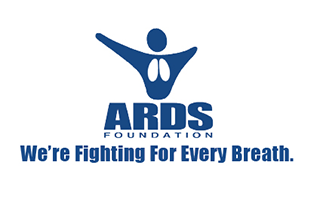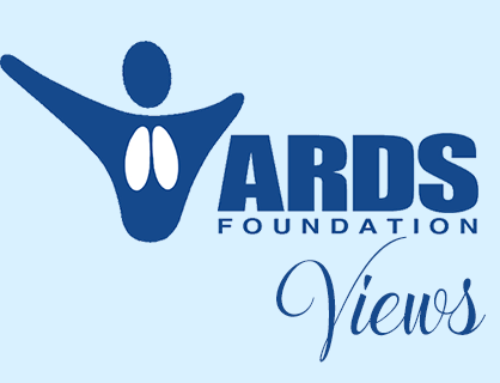by Gene Bass
December 15, 2002
In January of 2000, I heard a new four-letter word, ARDS. Little did I know that this term would be a part of my life three years later.
My Mom, in her mid 50’s at the time, had what her physicians thought was the flu. As I took her to the hospital on Sunday, I was relieved to hear that she would be fine; she just needed some rest, lots of fluids and antibiotics. As Sunday turned into Wednesday, I went by my parents house to check on her. As I walked in, it quickly became apparent that nobody was home. I knew something was wrong. Something told me to check the hospital, which was only a three-minute drive away.
As I pulled into the emergency room parking lot, I noticed my parents car parked in the lower lot. As I entered the ER, a receptionist, whom I knew personally, greeted me. I could tell by her look that something was wrong. She told me that my Mom was sent to Intensive Care and that I should go directly there. Having no real idea of what was going on, I proceeded to the ICU waiting room. As I walked into the waiting room, I saw my Dad talking with another family. My Dad is the type of person who tends to deny real issues and show little emotion. I asked him for details and he said they put her in ICU to keep an eye on her and give her some oxygen. I would soon find out that she had been diagnosed with pneumococcal pneumonia and was having difficulty breathing.
At this point, I was rather relieved that it was just pneumonia. Since she had a prior heart history, the first thing I thought was that she had a heart attack. As I entered her room, I immediately noticed she was getting a high percentage of oxygen via mask and having severe difficulty talking. She basically had no clue about what was going on and said she fell at home and thought she saw me there. Although I knew her condition was serious, I went home later that night feeling relatively good about things.
As I returned to the ICU the next morning, I was shocked at her condition, her deterioration. Her color was almost blue, she could barely get three words out of her mouth and her mental state was way off. I remember her asking me whose bowling balls were on the floor? I thought maybe it was the medication.
A short time later, her pulmonary doctor entered the room. He checked her out and asked her if she would give permission to intubate her? Intubate she asked? He explained it in these terms; “a tube down your throat to help you breath better”. She agreed.
The doctor left the room to make the preparations. I phoned my brother, who lives several hours away and told him that he needed to come right away. In hindsight, I had no idea of what was about to take place, nor did she. We talked for a short time until doctors and nurses entered the room to do the procedure. She said “I love you” and I kissed her good-bye. Little did I know that this would be the last time I would see her move or hear her voice for over two months.
Several hours later, I went back into her room. I was completely caught off guard by what I saw. She was totally sedated, her chest was moving up and down at an excessive rate and she looked like something one might see on the television. I literally felt as if I had stepped into someone else’s body and into the “Twilight Zone.”
I think to some extent I was still in denial about what was going on. It wasn’t until later that day that my father and I met with her pulmonary doctor in the ICU waiting room. He told us straight out; “your Mom is very sick, she only has a ten percent chance of making it”. At this point, reality checked in.
As if the situation were not bad enough, over the next few days, more bad news would follow. Her primary doctor told us she now had been diagnosed with Acute Respiratory Distress Syndrome. ARDS. Of course, like most ARDS families, I had no idea what he was talking about. I think the only thing I picked up was those four letters ARDS.
Armed with that, I went to my computer and did a search under the term ARDS. I will never forget the feeling of helplessness upon reading the newly found information. The statistics alone were enough to make my head spin, but I kept on reading for hours. I remember coming across the ARDS Support group and making my first contact with someone, I now had ‘Hope.’
Over the next two months, I would establish a network of several people who would guild me through each step of this terrible illness. I would be the sole decision maker in several family meetings regarding the removal of my moms life support. Decisions I was not prepared to make this early in my own life regarding another person’s life, especially my mother’s life.
I would basically shut down a portion of my life and devote my time to my family. I would sit next to her bed for hours on end getting to know the ICU staff that worked in my home away from home. I would set up my laptop computer in her room, read everything I could find regarding ARDS, medications and treatment protocols. I would become familiar with every aspect of her treatment, learning all the numbers, charts and x-rays. I was obsessed with finding solutions to what seemed to be a hopeless illness.
Without the support network online, there is absolutely no way I would have made it through those 99 days. Emotionally I felt like a yo-yo; physically I was running on pure adrenaline for two months straight. I remember leaving the hospital so many times thinking it would be that last time I said good-bye to my Mom. I would actually tell her that it was OK if she needed to go; I told her I understood.
As hours turned into days and days into weeks, I begin to wonder if I was holding on to hope for personal reasons. I had earlier gone against my older brothers decision to remove life support. Was I holding out hope for selfish reasons? I know now that I was better equipped to deal with the daily drama of ARDS. I had read literally every ARDS story posted on the Internet and always told doctors, “I have read about worse cases that survived.”
Each time doctors called for a family meeting, I would use examples of those who I had met on the Internet to fill the conversation with hope rather than despair. I often felt as if they just wanted to “clear an ICU bed” instead of doing everything they could to help her.
n hindsight, I think that one reason doctors give up hope is because they feel as if they have no medical options left. While some will mention it, most often doctors forget about the power of something far greater than medicine.
As January of 2003 approaches, it hardly seems like it has been three years since this whole ordeal. Not one day has gone by without the terms ARDS being used in my life. I have corresponded with literally hundreds of people via the Internet. I have made friends with people whom I have never met face to face. My world has changed in many ways since January of 2000. I am Thankful for each day I have with my Mom and family. I am Thankful that my Mom is here with us today and able to enjoy life.
I will continue to reach out to those who find themselves in the same situation as I did three years ago. Not because I feel I need to, but because I want to. I pray that someday the community will be as aware of ARDS as they are of Cancer or AIDS.
To everyone who gives their time to help others, I Thank You. Without the help of people just like you, my mother would not be here today




